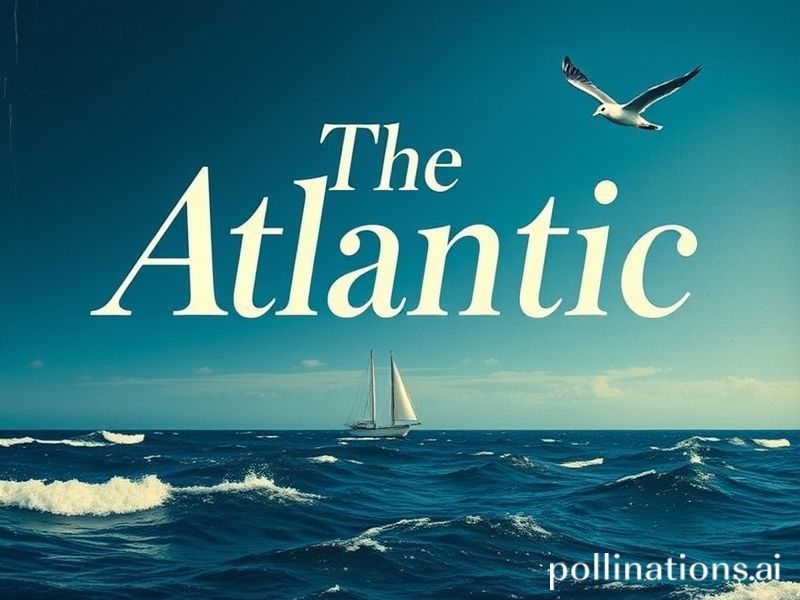Why The Atlantic is the Unexpected King of Internet Culture
**The Atlantic’s Wave: Why the Centuries-Old Magazine is Making a Splash in Internet Culture**
Alright, folks, gather ’round. We’re about to dive into a trend that’s as surprising as it is fascinating. The Atlantic, that venerable old magazine that’s been around since your great-great-grandparents were swapping telegrams, is suddenly the talk of the town. But why, you ask? Well, buckle up, because we’re about to find out.
**A Brief History Lesson (Don’t Worry, It’s Short)**
First, let’s rewind. The Atlantic was founded in 1857, back when “viral” meant something entirely different. It’s been a staple of American journalism ever since, known for its long-form, thoughtful pieces. But in the age of Twitter and TikTok, who has time for that, right? Wrong, apparently.
**The Internet’s Unexpected Crush**
So, why is The Atlantic trending now? Well, it’s not just one thing. It’s a perfect storm of factors that have catapulted this old-timer into the spotlight.
1. **The Ta-Nehisi Coates Effect**: Coates, a national correspondent for The Atlantic, wrote a piece called “The Case for Reparations” in 2014. It went viral, sparking conversations about race and history that are still happening today. Coates’ work brought a new, younger audience to The Atlantic, proving that deep, thoughtful journalism can still resonate in the internet age.
2. **The Pandemic’s Silver Lining**: With everyone stuck at home, people started craving substantive content. The Atlantic’s long-form journalism fit the bill perfectly. Plus, their COVID-19 coverage was comprehensive and accessible, making it a go-to source for many.
3. **The Internet’s Nostalgia Bug**: There’s a trend right now for “slow media” – a backlash against the 24-hour news cycle and clickbait headlines. The Atlantic, with its thoughtful, in-depth pieces, is the perfect antidote.
4. **The Substack Effect**: When some high-profile journalists left traditional media for Substack, it sparked a conversation about the value of journalism. The Atlantic, with its strong editorial voice and commitment to quality, emerged as a beacon in this debate.
**Cultural Context: The Atlantic in the Age of Meme Culture**
But here’s the really interesting part: The Atlantic isn’t just trending among policy wonks and academics. It’s making waves in internet culture. Memes, tweets, and TikToks referencing The Atlantic are everywhere. Why? Because internet culture loves a good paradox, and The Atlantic is the ultimate paradox – a centuries-old magazine that’s suddenly cool.
**Social Impact: More Than Just a Trend**
But let’s not dismiss this as just another fleeting internet trend. The Atlantic’s newfound popularity has real-world implications. It’s a testament to the fact that people are hungry for quality journalism, even in the age of misinformation and fake news. It’s also a reminder that old media can adapt and thrive in the digital age.
**What Makes This Topic Significant**
So, why should you care? Because this trend is about more than just a magazine. It’s about the future of journalism, the power of the internet to reshape our cultural landscape, and the enduring value of deep, thoughtful content. Plus, it’s always fun to see the old guard make a comeback.
In conclusion, The Atlantic’s sudden trendiness is a heartwarming tale of an old dog learning new tricks. It’s a reminder that in the age of the internet, quality still matters, and that even the most traditional institutions can find new life in the digital age. So, next time you’re scrolling through your feed, consider giving The Atlantic a read. You might just find yourself part of the trend.







